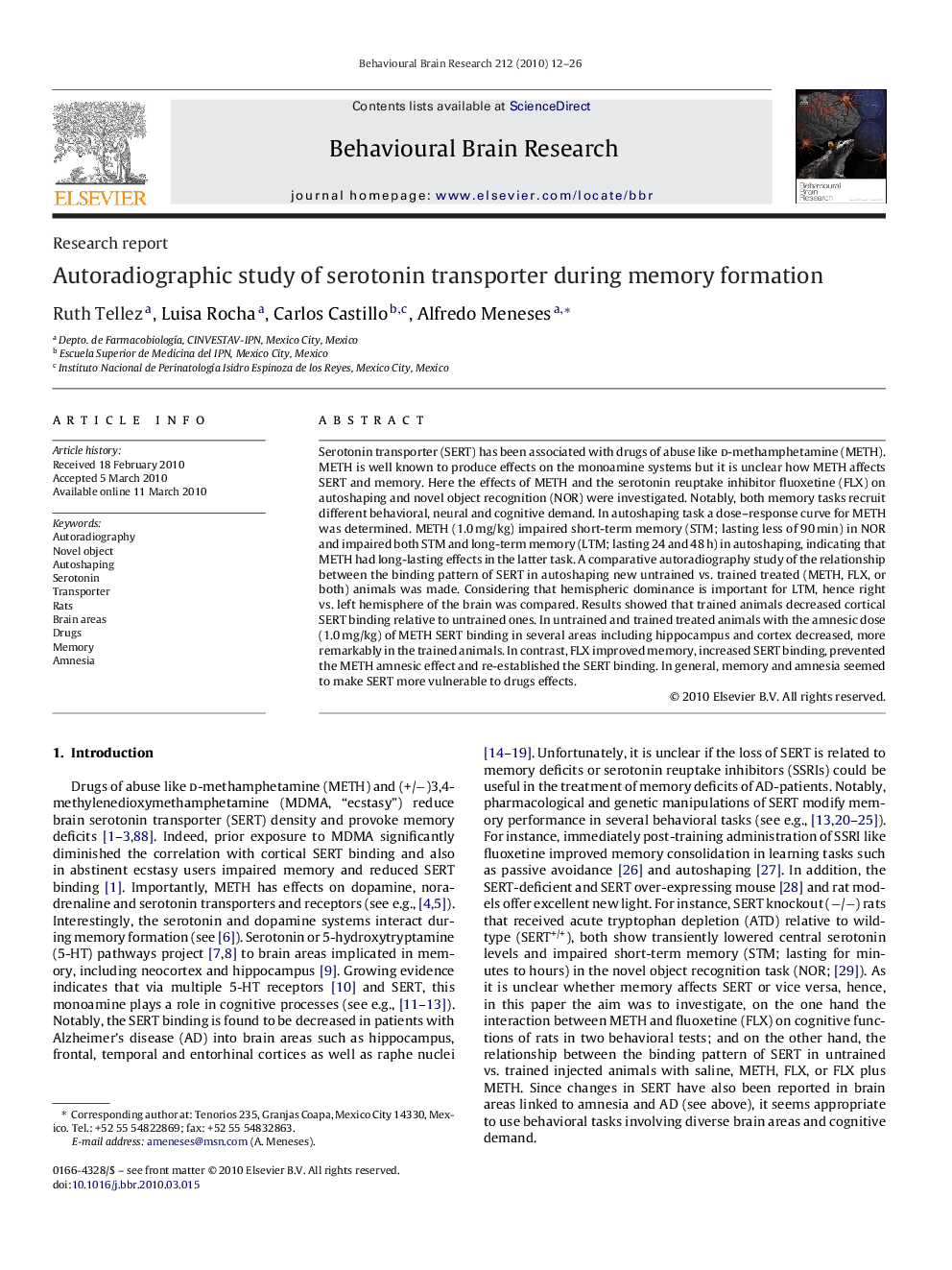| Article ID | Journal | Published Year | Pages | File Type |
|---|---|---|---|---|
| 4314199 | Behavioural Brain Research | 2010 | 15 Pages |
Serotonin transporter (SERT) has been associated with drugs of abuse like d-methamphetamine (METH). METH is well known to produce effects on the monoamine systems but it is unclear how METH affects SERT and memory. Here the effects of METH and the serotonin reuptake inhibitor fluoxetine (FLX) on autoshaping and novel object recognition (NOR) were investigated. Notably, both memory tasks recruit different behavioral, neural and cognitive demand. In autoshaping task a dose–response curve for METH was determined. METH (1.0 mg/kg) impaired short-term memory (STM; lasting less of 90 min) in NOR and impaired both STM and long-term memory (LTM; lasting 24 and 48 h) in autoshaping, indicating that METH had long-lasting effects in the latter task. A comparative autoradiography study of the relationship between the binding pattern of SERT in autoshaping new untrained vs. trained treated (METH, FLX, or both) animals was made. Considering that hemispheric dominance is important for LTM, hence right vs. left hemisphere of the brain was compared. Results showed that trained animals decreased cortical SERT binding relative to untrained ones. In untrained and trained treated animals with the amnesic dose (1.0 mg/kg) of METH SERT binding in several areas including hippocampus and cortex decreased, more remarkably in the trained animals. In contrast, FLX improved memory, increased SERT binding, prevented the METH amnesic effect and re-established the SERT binding. In general, memory and amnesia seemed to make SERT more vulnerable to drugs effects.
